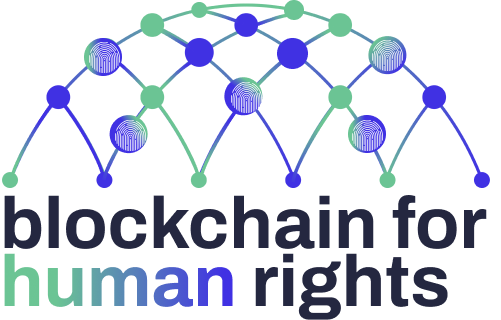Blockchain for Human Rights
Launch and Panel Discussions, Impact Hub Zurich, 12.04.2024
Blockchain for Human Rights (BHR) officially launched on 12th of April, 2024. The event involved a meeting to discuss the intersection of blockchain technology and human rights, with a focus on digital identity solutions for stateless individuals. The organisers presented BHR's mission and partnerships with various human rights organizations, emphasizing the potential of blockchain to record and verify information related to human rights, protect privacy and data security, and advocate for positive change with local and national governments. The meeting included panel discussions on the challenges and trade-offs in third-generation blockchain technology, the impact of government policies on refugees and migrants, and the complexity in defining legal identity rights with international law.
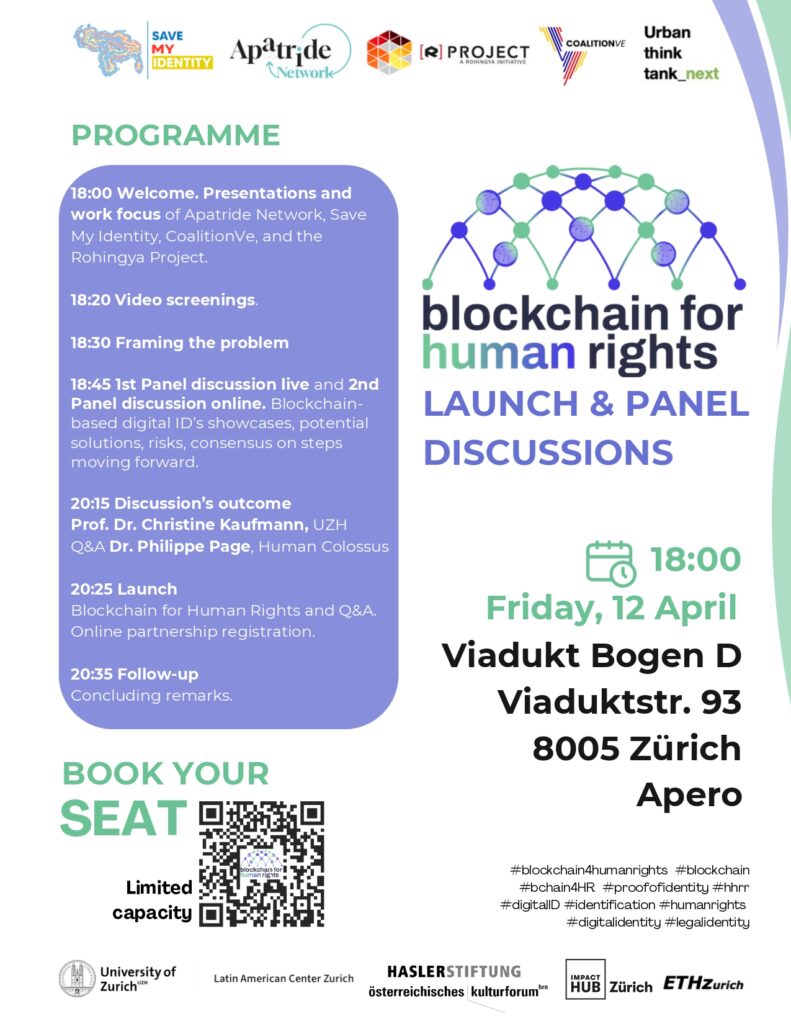
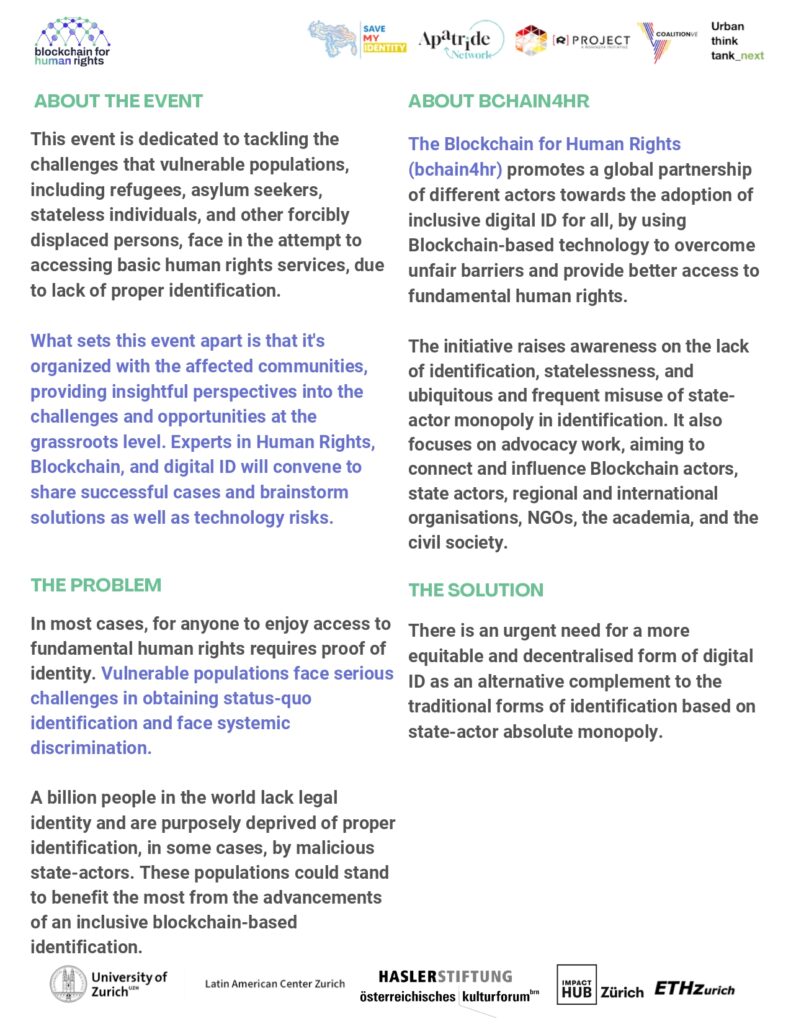
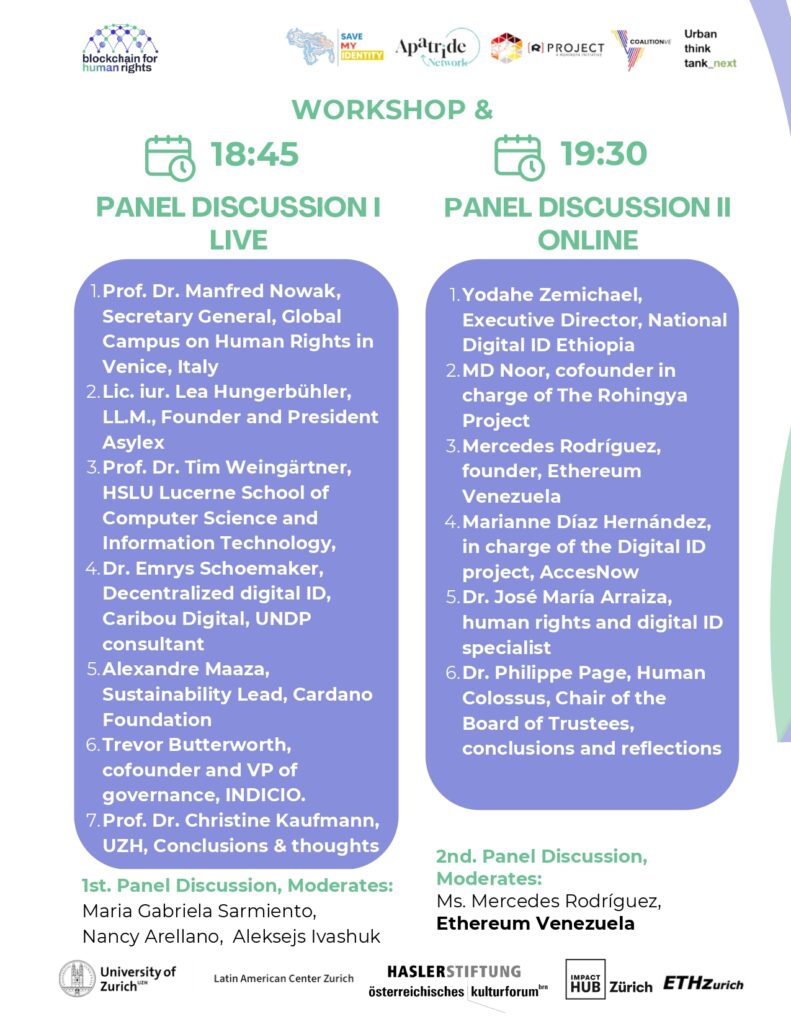
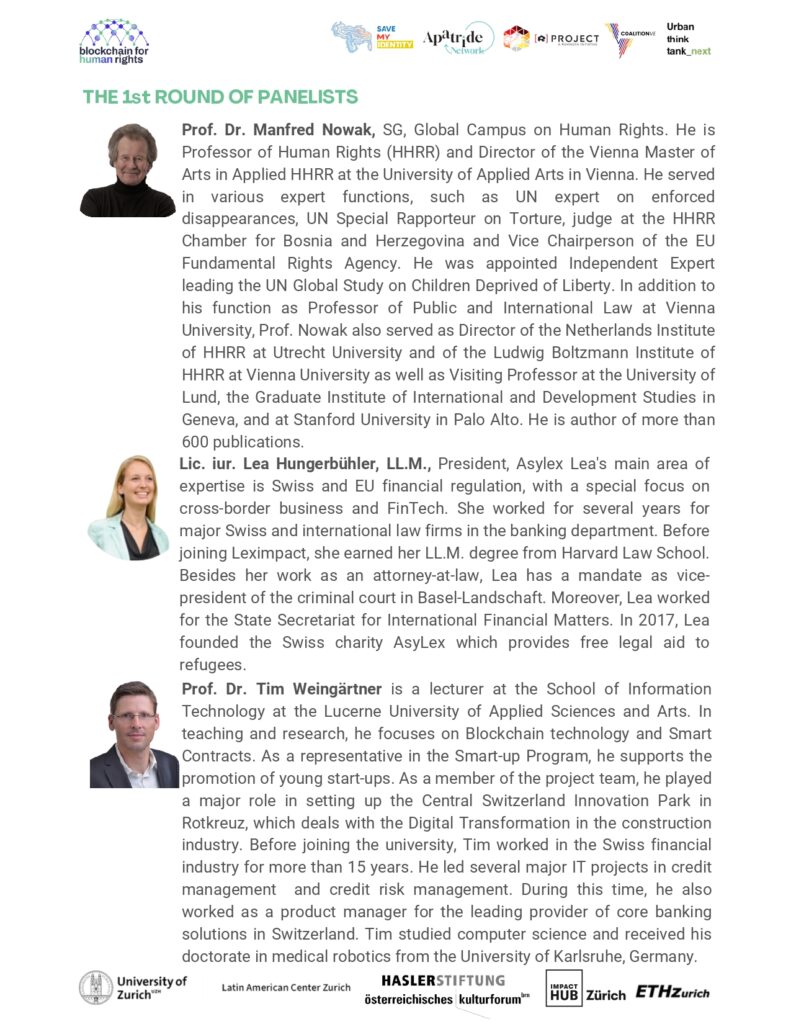
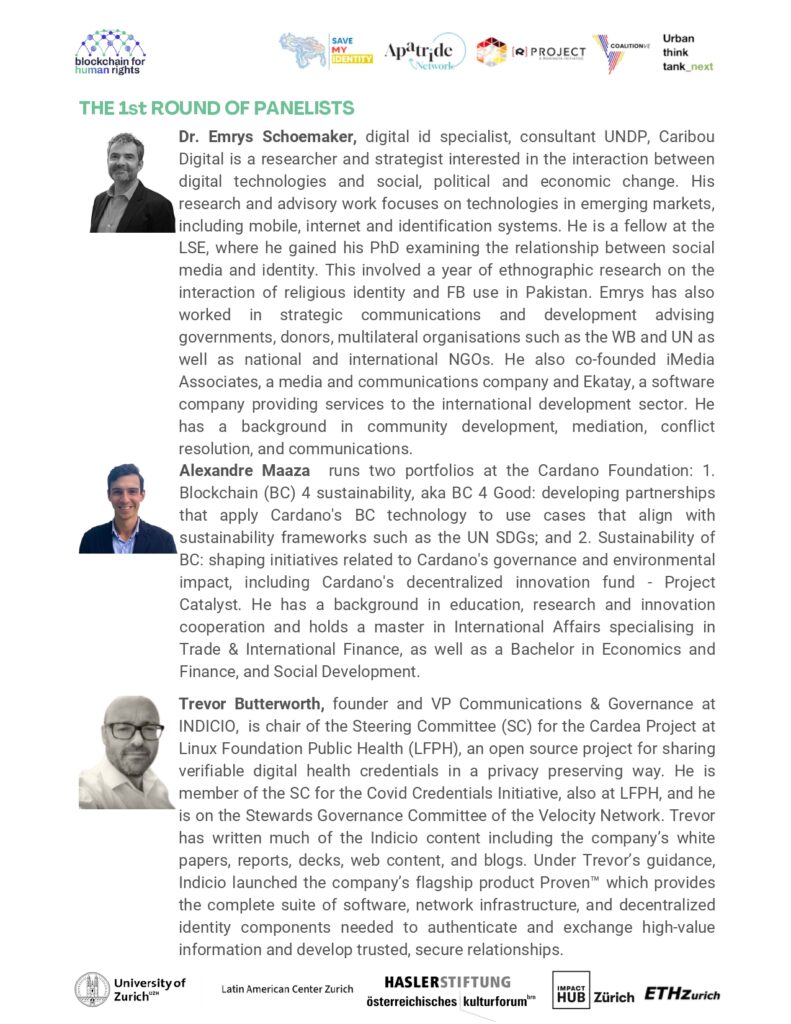

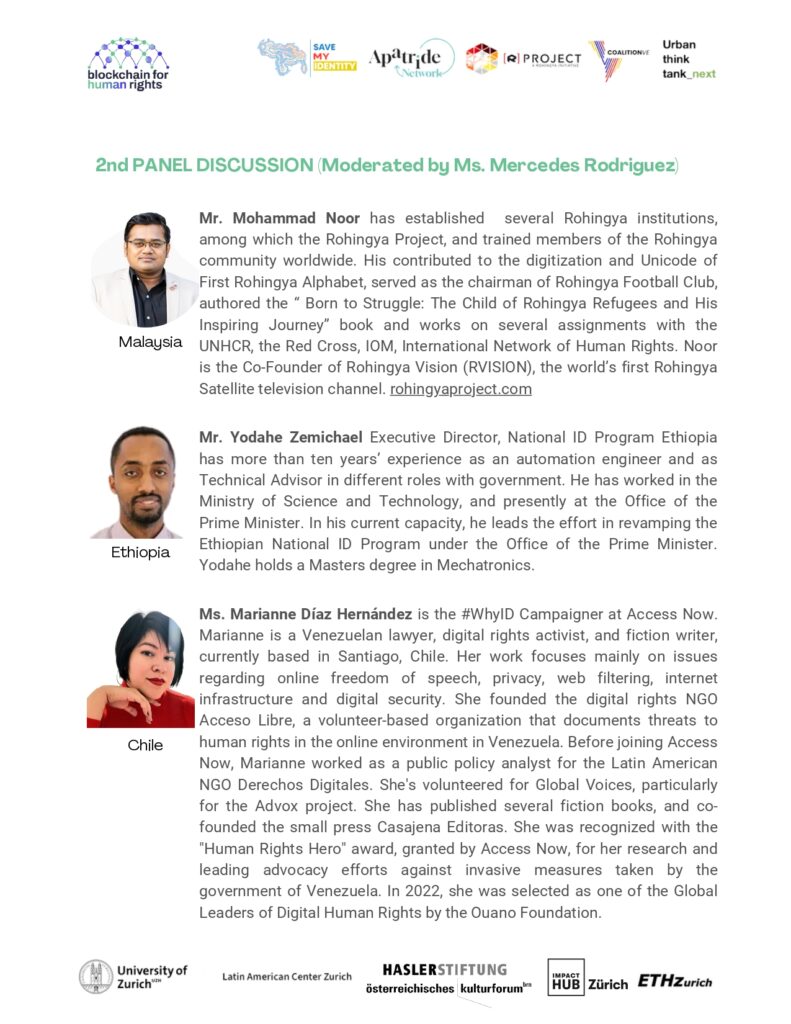
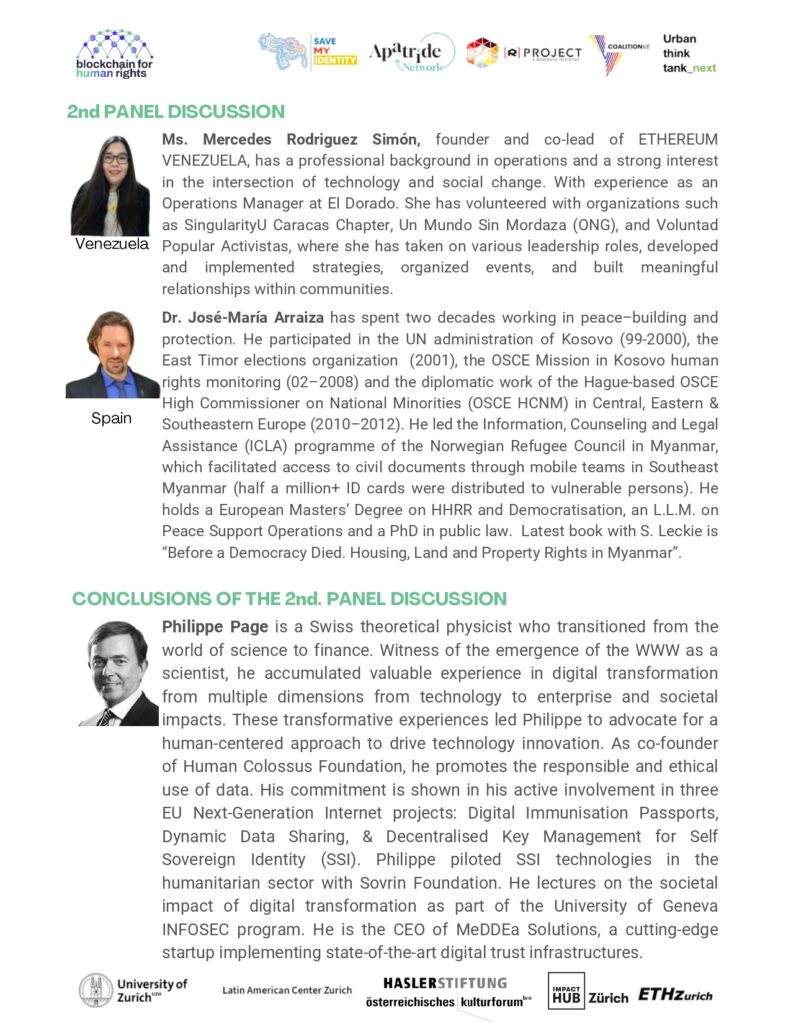
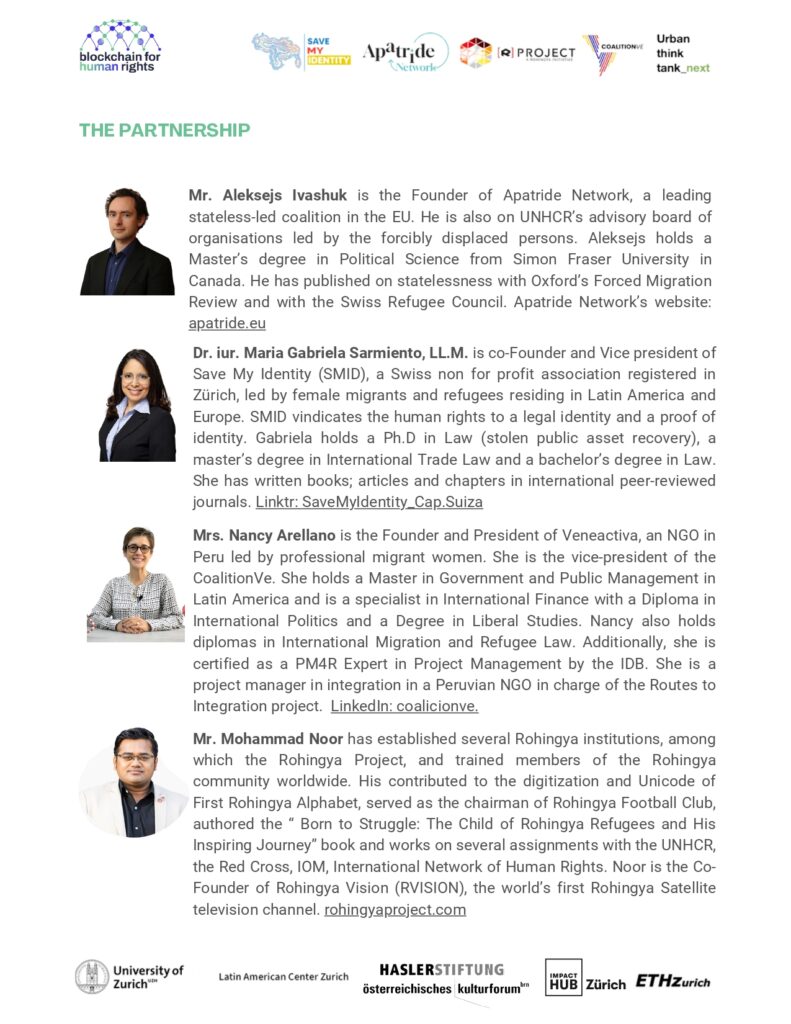
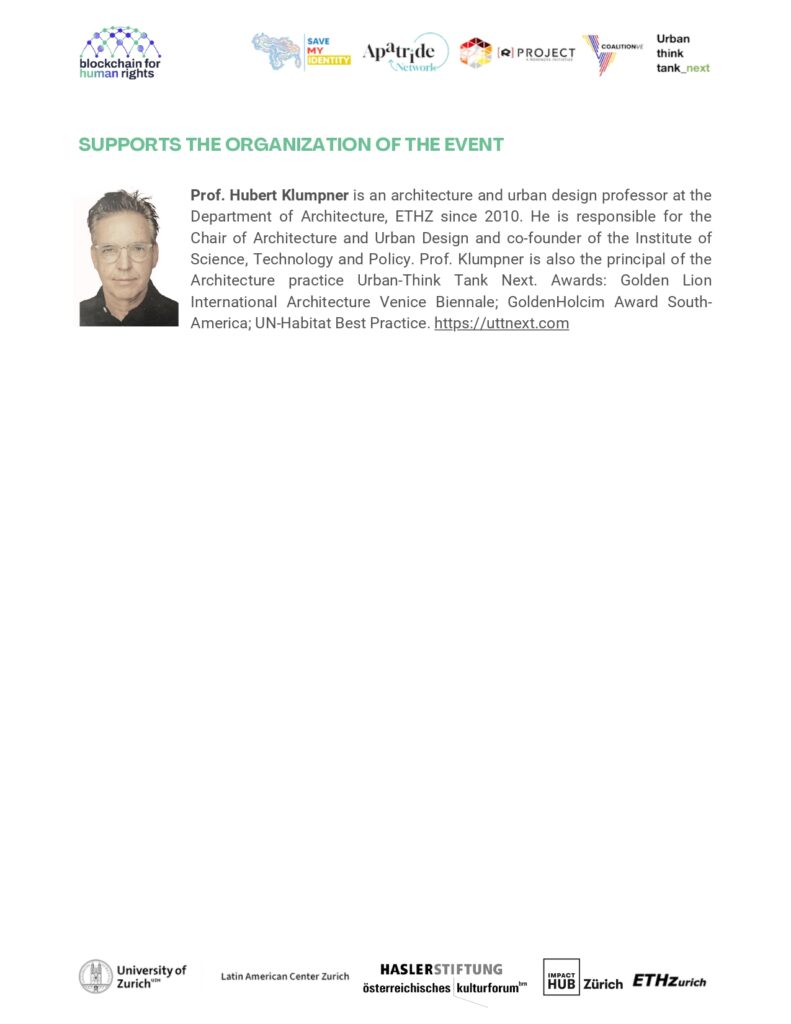
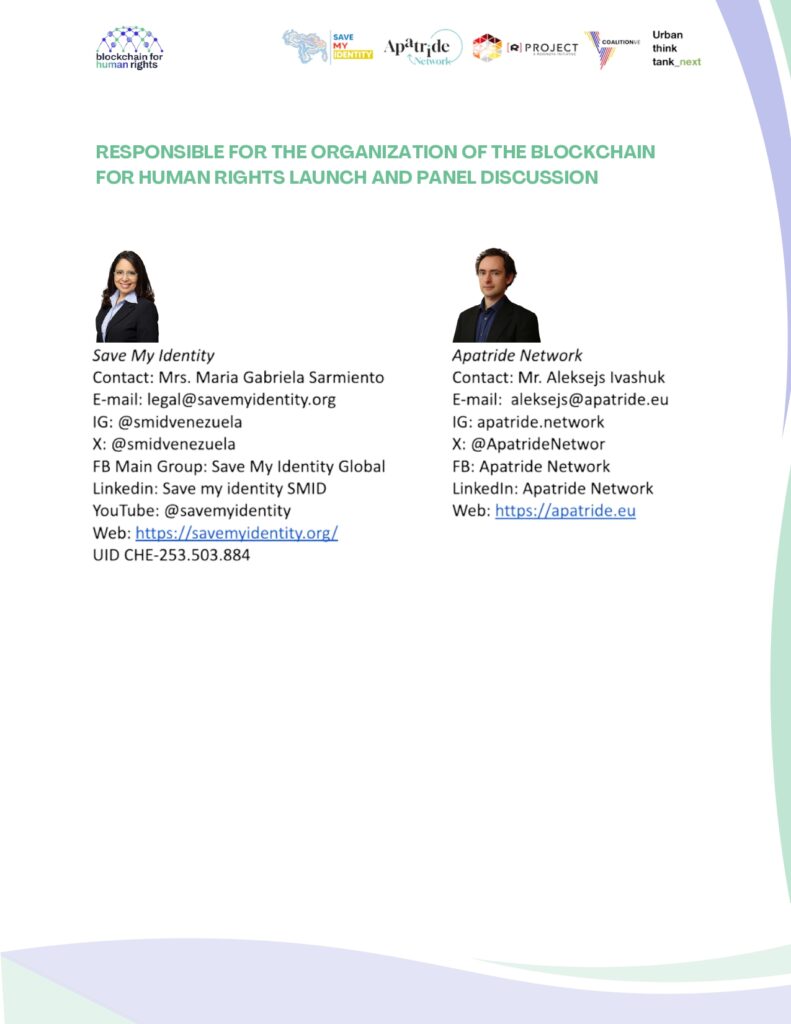
There is a pressing issue of over 1 billion people worldwide lacking access to identity documents. This number does not include those who have inferior forms of identification, such as those with refugee or stateless documents. Vulnerable populations all over the world are most affected, especially women and children. The speakers advocated for international protection and proposed leveraging blockchain technology to provide better legal identification with better coverage, emphasizing the potential for municipalities, NGOs, and the private sector to play a role in issuing digital identities. The discussion also addressed concerns about the misuse of technology in the European Union and the need for fair solutions that protect the rights of all individuals.
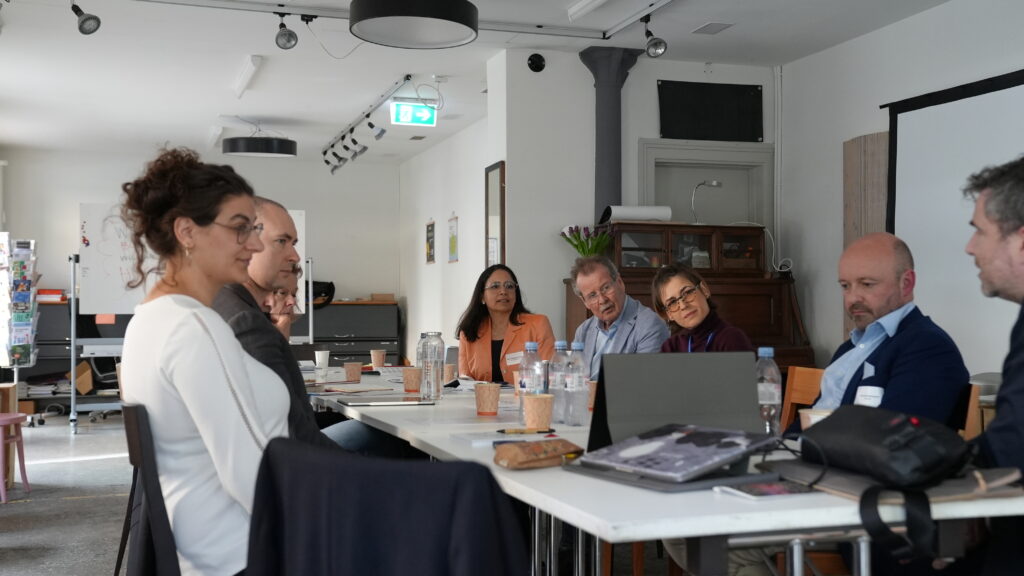
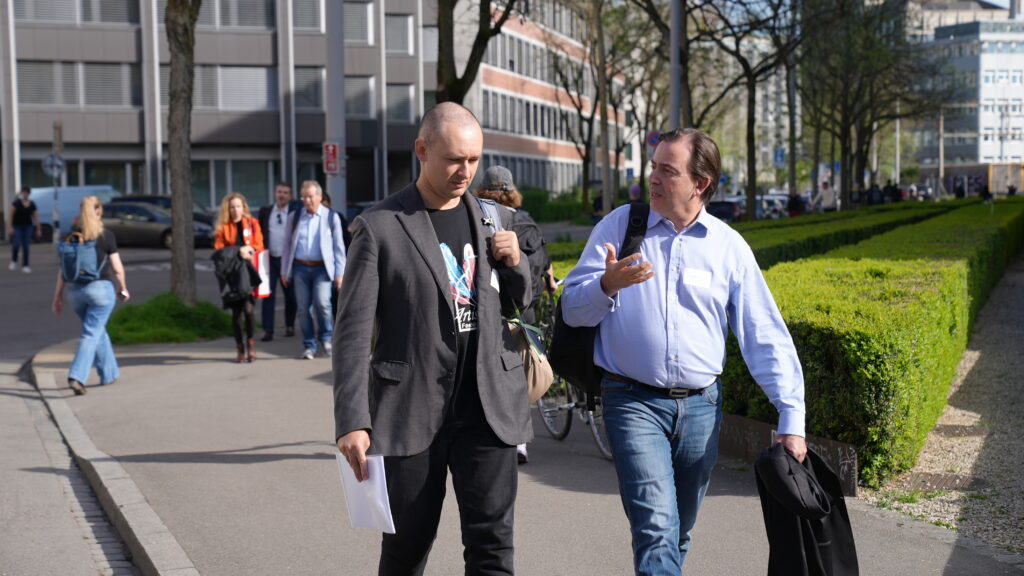
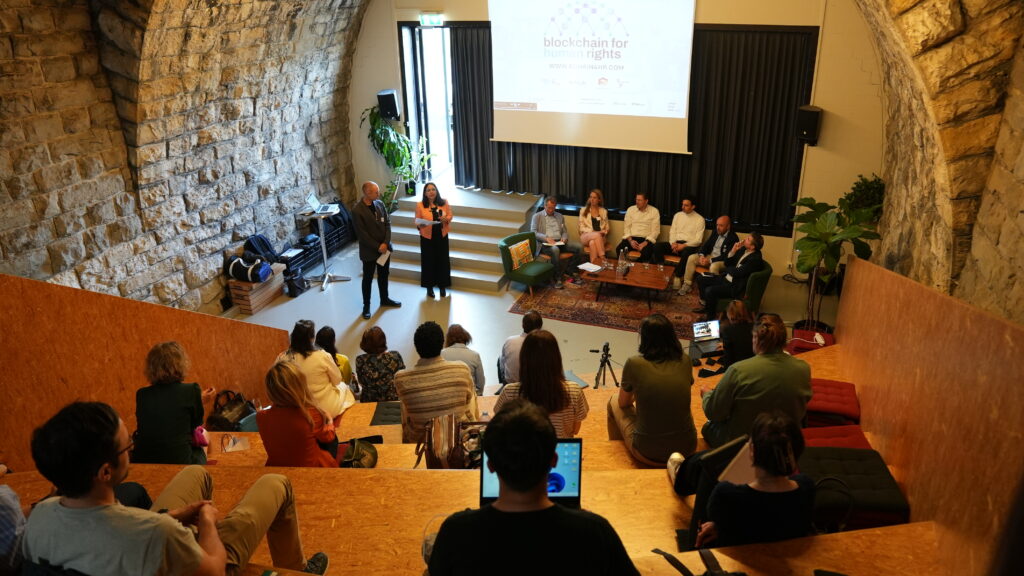
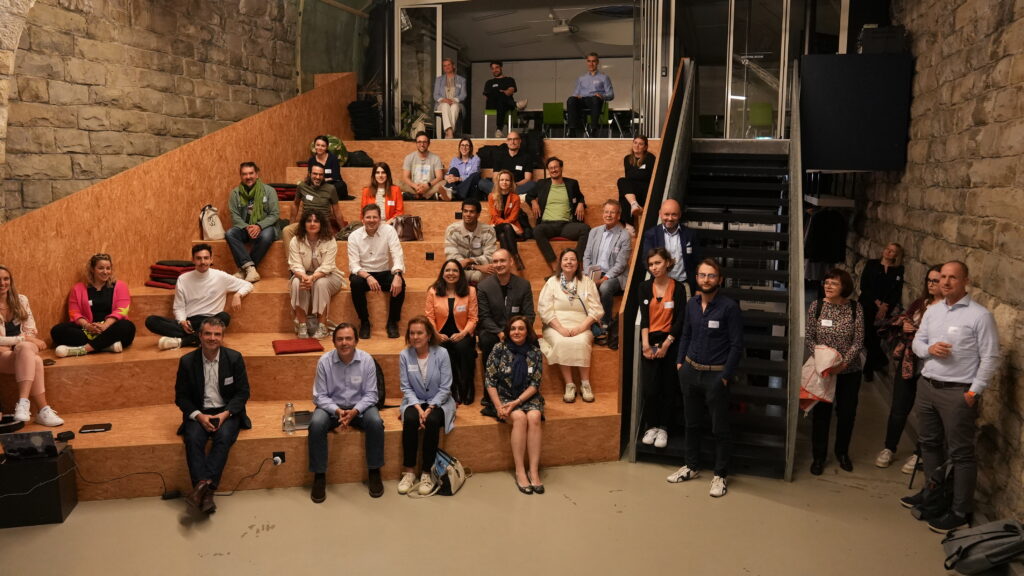
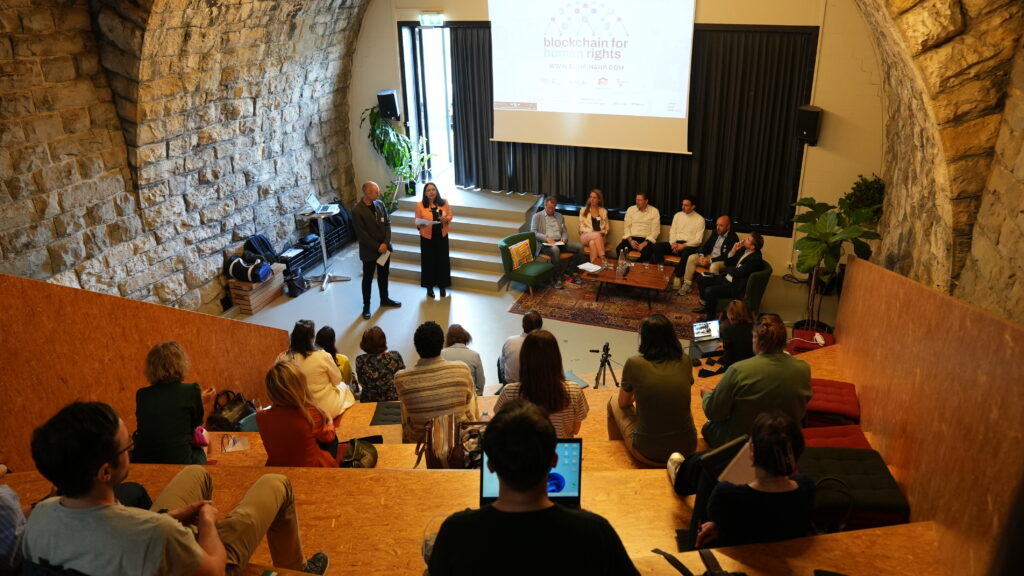
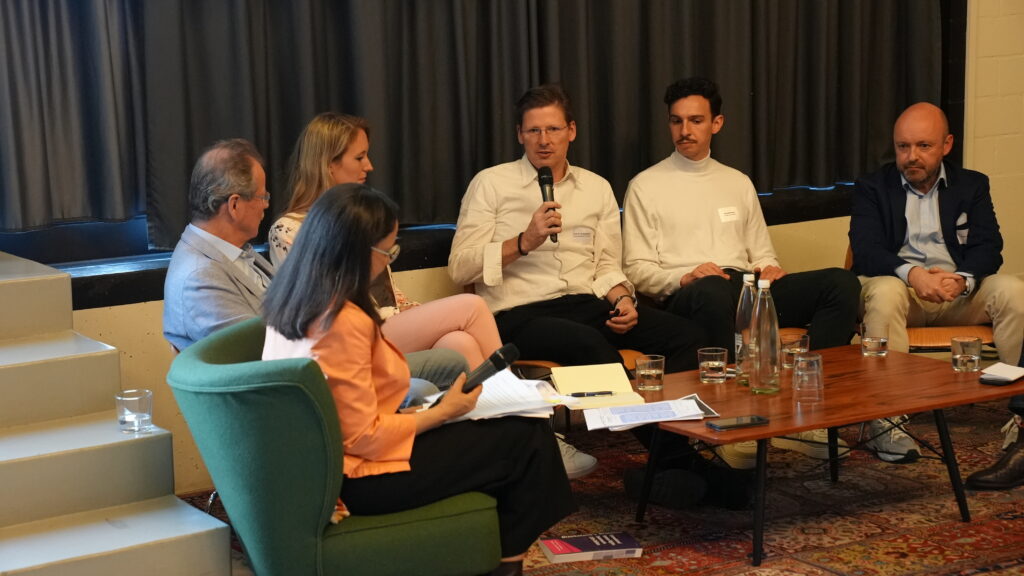
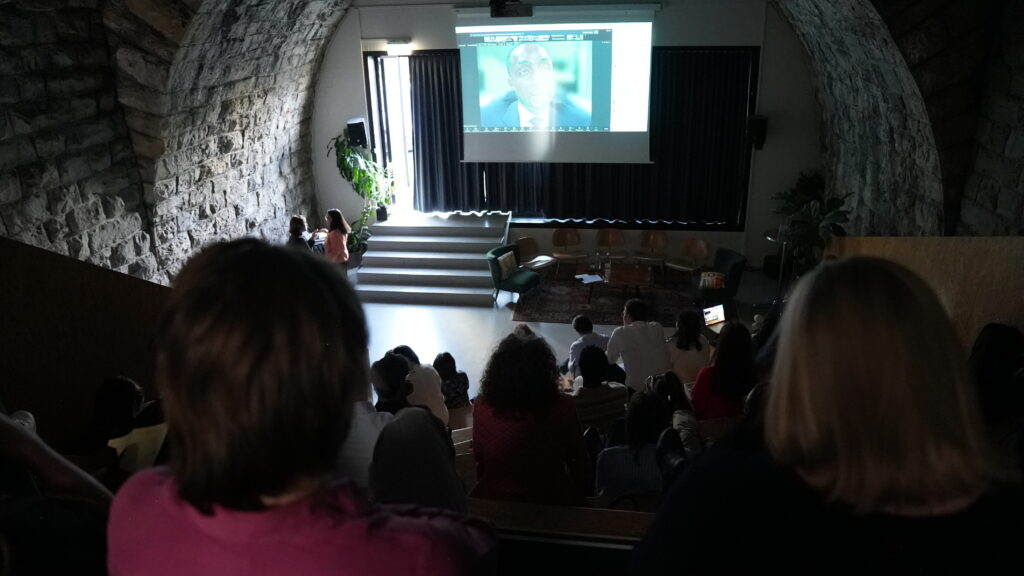
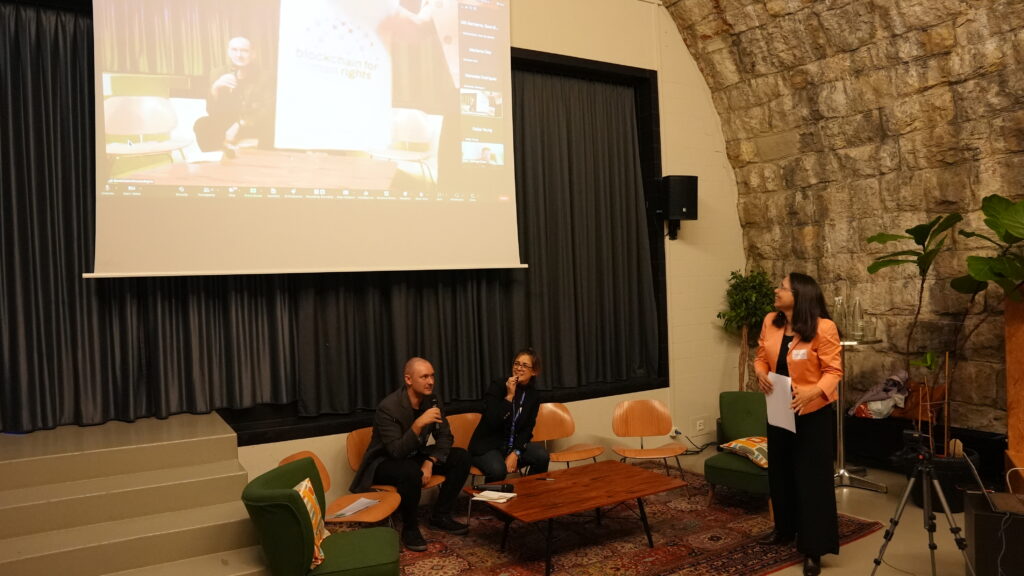
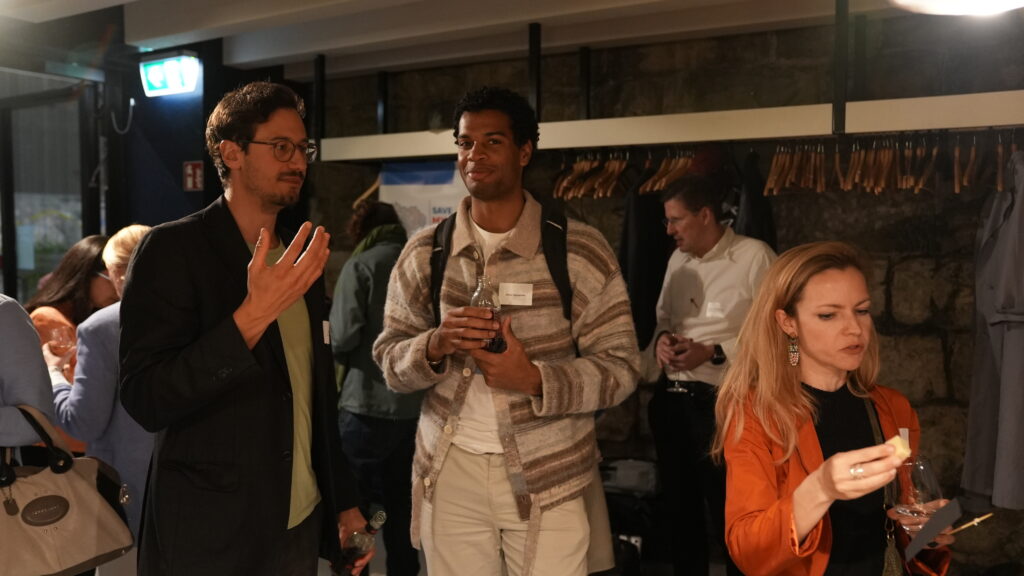
In conclusion, the launch of BHR emphasized the need to redefine and clarify the concept of identity proof in the digital age, pointing out the competition between states and the private sector in providing digital identification services. The speakers also underscored the critical role of civil society in shaping the debate and highlighted the global significance of these issues. The meeting included presentations on the challenges in Ethiopia arising from the absence of a national traceable identity system and the struggle for recognition faced by the Rohingya stateless community, including severe human rights violations and genocide. The event provided a deep dive into the complexities and implications of digital identity and technology in the context of human rights.
Join Us
We are looking to extend the partnership to include more interested parties in our mission, connecting relevant actors between the fields of human rights and blockchain development. Knowledge sharing and stakeholder bridge-building are of particular interest.
Contact Us
©2024. Blockchain for Human Rights. All Rights Reserved.
